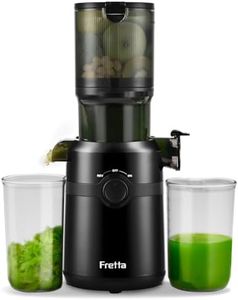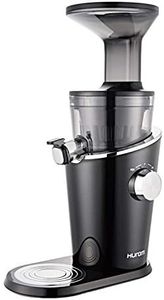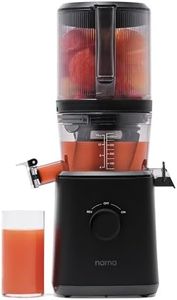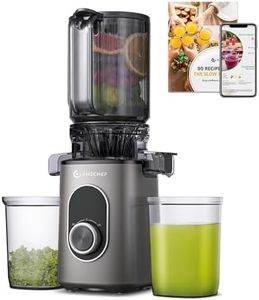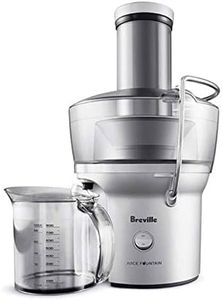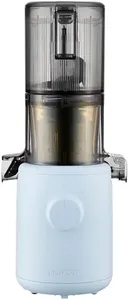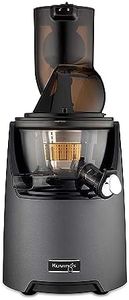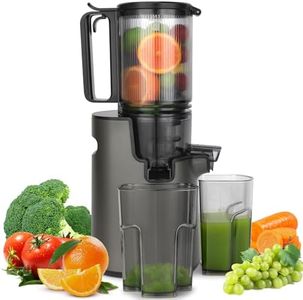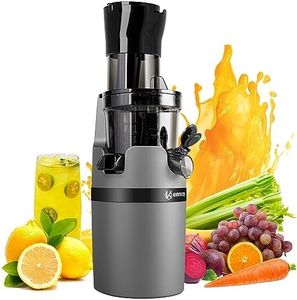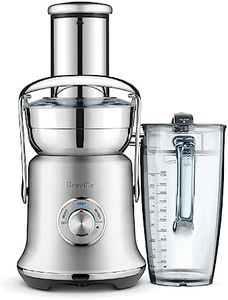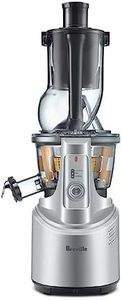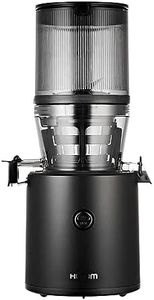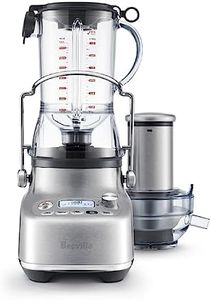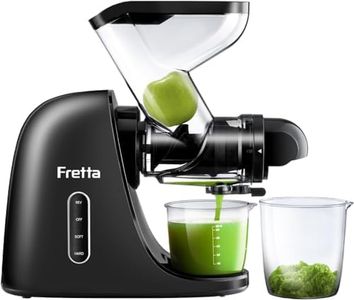We Use CookiesWe use cookies to enhance the security, performance,
functionality and for analytical and promotional activities. By continuing to browse this site you
are agreeing to our privacy policy
10 Best Cold Pressed Juicers
From leading brands and best sellers available on the web.By clicking on a link to a third party's website, log data is shared with that third party.
Buying Guide for the Best Cold Pressed Juicers
Choosing the right cold-pressed juicer is all about understanding how you'll use it and what matters most to you, whether it's juice quality, speed, or ease of cleaning. Cold-pressed juicers, also known as masticating or slow juicers, are popular because they produce high-quality juice with more nutrients and less foam than traditional centrifugal juicers. When shopping, it’s important to look at a few key features to find a juicer that matches your lifestyle, kitchen space, and juicing habits.Juicing Speed (RPM)RPM refers to the number of times the juicer’s auger turns per minute. Lower RPM (typically 40-100) means slower operation, which minimizes heat and oxidation, preserving nutrients and taste. Higher RPMs (above 100) work faster but may compromise on juice quality. If you want the highest quality juice with longer shelf life, look for lower RPMs. If speed is more important and you plan to drink the juice right away, a juicer with a higher RPM may suit your needs.
Feed Chute SizeThe feed chute is where you insert your fruits and vegetables. A wider chute (over 3 inches) allows you to feed larger pieces, sometimes whole produce, reducing prep time. A smaller chute means you’ll need to cut produce into smaller pieces, which takes more effort but can be safer and may yield slightly more juice. Choose a chute size based on how much time you want to spend preparing ingredients and your comfort with handling larger produce.
Ease of CleaningSome juicers have more parts and tiny crevices, taking more time and effort to clean, while others have fewer parts and dishwasher-safe components that make cleanup easier. If you plan to juice daily or value convenience, look for a juicer known for quick assembly and easy cleaning. Otherwise, if you juice occasionally or don’t mind spending a bit more time, you have more flexibility.
Juice YieldJuice yield refers to how much juice is extracted from the same amount of produce. Higher yield means less waste and more juice for your money. Some juicers are better at extracting juice from leafy greens, while others excel with hard fruits and veggies. Think about the ingredients you’ll use most often—if you love green juices, seek a model known for high yield with leafy greens.
Noise LevelCold-pressed juicers are generally quieter than centrifugal types, but there’s still some variation. Some models are nearly silent, while others do produce a moderate hum. If you juice early in the morning or have a quiet household, a particularly quiet model can be a good fit. Otherwise, if noise isn’t a concern, most cold-pressed juicers will be sufficiently quiet.
Size and StorageJuicers come in various shapes and sizes. Vertical juicers typically have a smaller footprint and fit better on countertops, while horizontal models may take up more space but can be more versatile with attachments. Think about your kitchen space and whether you want to store the juicer away after use or keep it on the counter for regular use.
